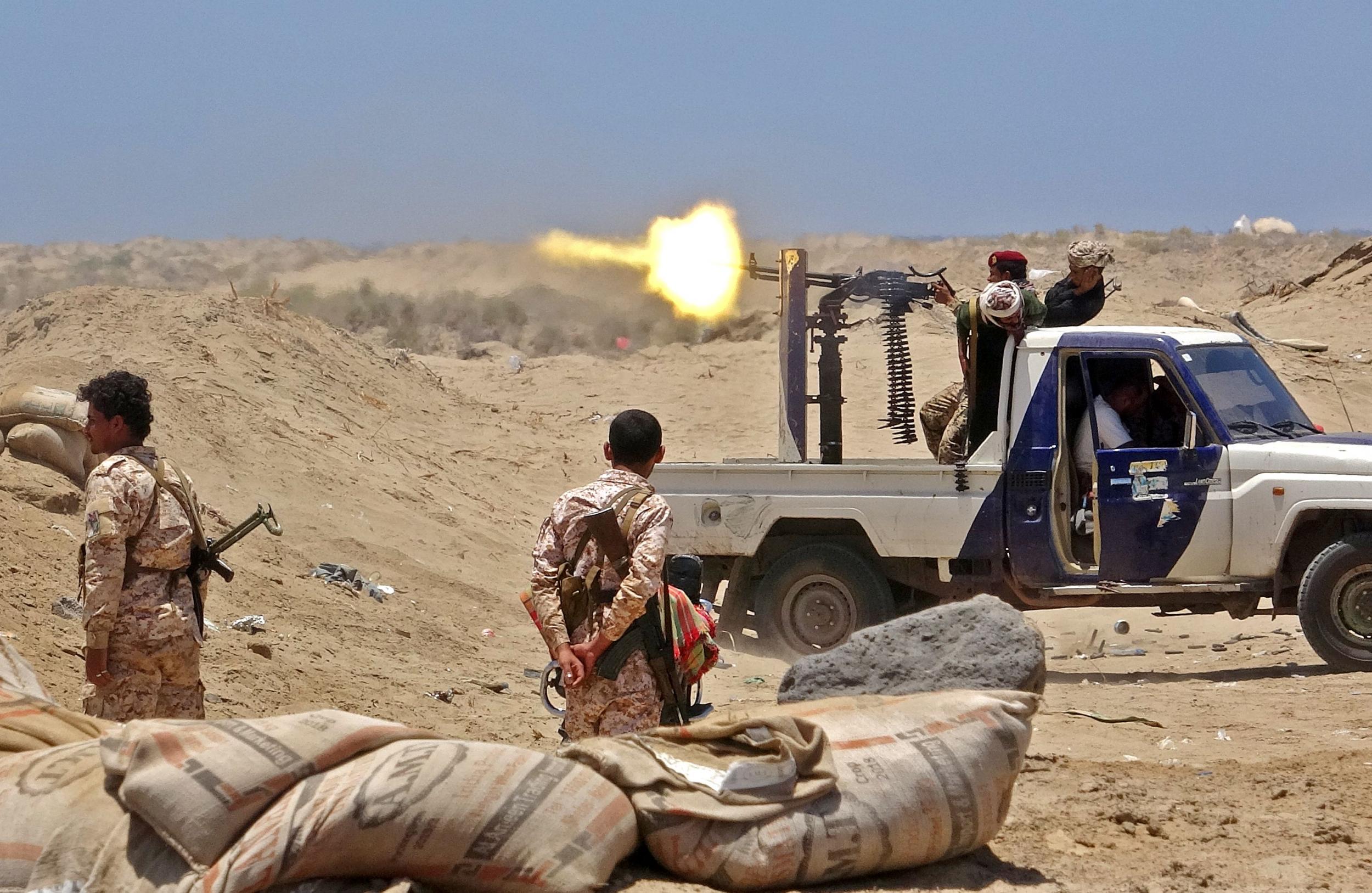Aden ‘infested’ by coronavirus amid fierce clashes between Yemeni government and separatists
Despite a surge in Covid-19 cases, fighting rages between former allies in Yemen’s key southern provinces, writes Bel Trew


Fighting between government forces and southern separatists surged in Yemen on Tuesday, just a day after the authorities declared Aden, the de facto capital of the south, to be “infested” with the coronavirus.
Yemen’s healthcare system has already been ravaged by a five-year civil war between the internationally recognised government, backed by a Saudi-led coalition, and the Houthi rebels who control Sana’a and swathes of the north.
Further pressure has been piled on the country’s few remaining medical facilities in recent months after fighting erupted between factions within the Gulf alliance.
Despite warnings that political upheaval in the south was obstructing efforts to stem a surge in Covid-19 cases, fighting raged in Abyan, a province adjacent to Aden and the seat of the interim government.
After weeks of mounting tensions, clashes were ignited when government troops advanced on Zinjibar, Abyan’s provincial capital located just 60km northeast of Aden. The secessionist Southern Transitional Council (STC), which is financed by the UAE, sent in reinforcements to “defend” it.
The day before, Yemen’s committee monitoring the pandemic announced 17 new Covid-19 cases in the south, adding that the “political situation in Aden is ... hampering efforts to combat the coronavirus”.
The World Health Organisation has repeatedly warned that there is a full-blown transmission of the virus in Yemen, with the disease spreading undetected among a population already devastated by years of fighting and famine. Nearly 60 cases and 10 deaths have been registered across the country, but the true level of infection is believed to be much higher.
On Tuesday, Yemen’s foreign minister, Mohammed Abdullah al-Hadrami, accused the separatists of trying to “destabilise security and stability” through “provocative military mobilisation”. He vowed that the government forces would “defend the homeland, protect its security, territorial integrity, and confront every armed rebellion”.
Southern separatist leader Aydarous al-Zubaidi refused to back down and called on supporters to “take up arms and defend the dignity and independence” of Yemen’s south. The STC, which is demanding a restoration of the independent country South Yemen that existed before unification in 1990, declared self-rule over Aden last month – adding to the confusion.
Yemen’s civil war erupted in 2015 after the Iran-backed Houthi rebels took control of most of the country, ousting the then president, Abedrabbo Mansour Hadi.
Fearing the encroachment of Iran in the region, Saudi Arabia and its Gulf allies, including the UAE, launched a bombing campaign to reinstate Mr Hadi.
Five years on and the war has sparked the world’s worst humanitarian crisis in terms of numbers, according to the United Nations. Only half of Yemen’s medical facilities are functioning.
Millions of civilians have been pushed to the brink of famine, leaving them particularly vulnerable to the coronavirus pandemic.
Despite efforts to forge a long-term ceasefire between the government and the Houthis, the country looks set to collapse into a second and protracted civil war between the government and the separatists it was once fighting alongside.
Saudi Arabia and the UAE have been unable to stop factions within their alliance battling over territory.
Medics within the country told The Independent that the many levels of fighting were hindering efforts to test for the deadly virus that was spreading fast in both the south and the north of the country.
Ashwaq Moharram, a Yemeni doctor who has spent the last five years trying to tackle famine in the north, said that a “woeful” lack of testing meant no one had any idea how widespread the problem was, while protective equipment was in short supply.
In Houthi-controlled Sana’a, just two Covid-19 cases and one death have been officially registered. The Aden-based government has accused the Houthi authorities of covering up an outbreak in Sana’a, an accusation they deny.
Ms Moharram said that most medics were treating the sick without personal protective equipment because it was too expensive.
“A packet of 25 N95 masks is $100 now; no one has that kind of money,” she told The Independent from a hospital in the strategic port city of Hodeidah.
“There are just not enough tests, not enough protective equipment, not enough awareness or knowledge of how to prevent infection. We don’t have a way of stopping the spread of the disease.”
Join our commenting forum
Join thought-provoking conversations, follow other Independent readers and see their replies
Comments
Bookmark popover
Removed from bookmarks